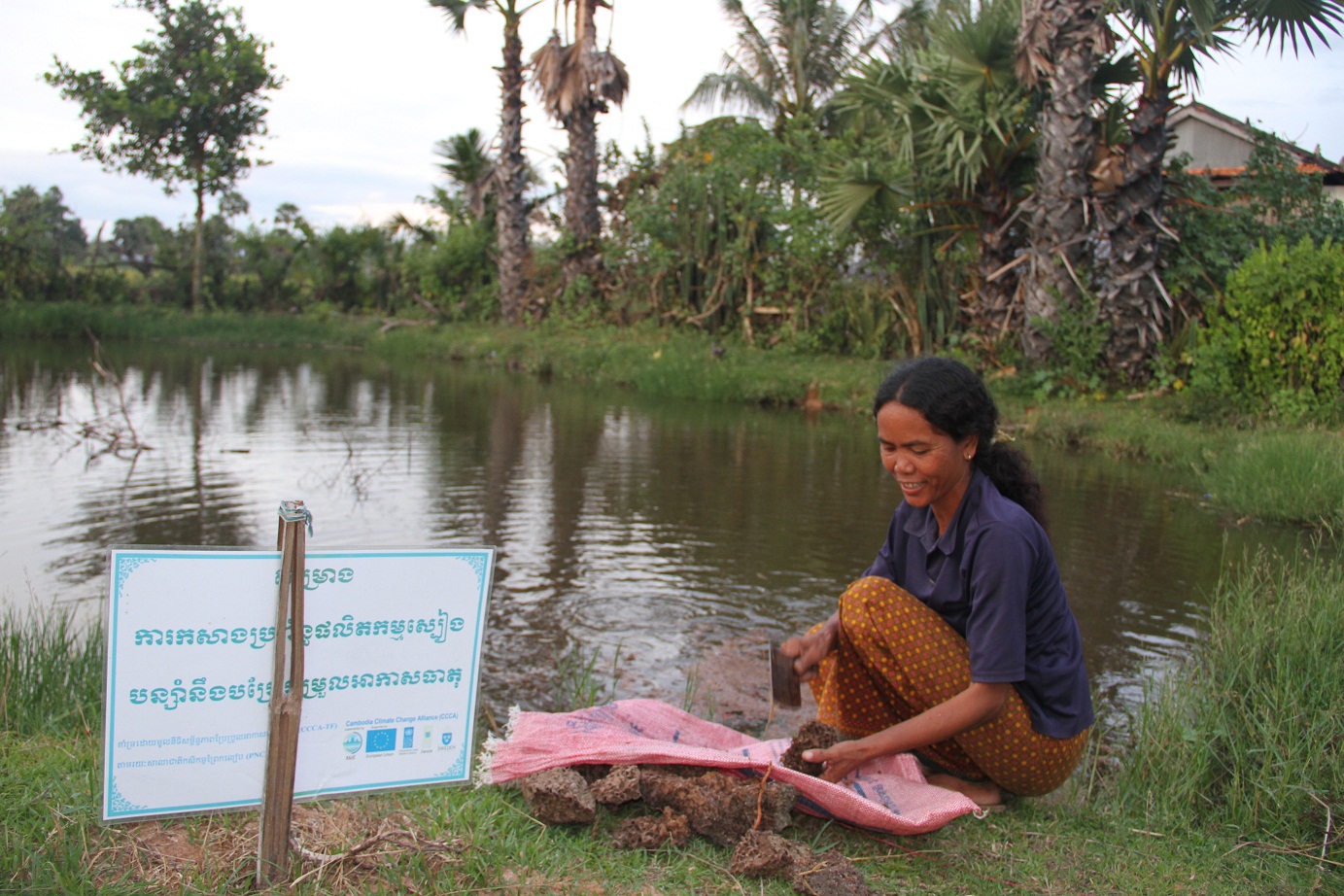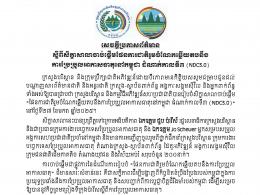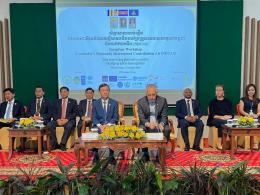
The pilot climate change projects funded by CCCA are designed to increase the resilience of vulnerable communities to the long-term impacts of climate change, but these projects also bring more immediate benefits for local populations trying to adapt to current climate variability and extreme events. This was recently demonstrated during the floods which hit Cambodia between August and October 2013, affecting 21 provinces and over 400,000 households, and leading to the loss of at least 168 lives. Many of the CCCA’s pilot projects have contributed to better preparedness and resilience of vulnerable communities. For instance:
Climate Resilience of Irrigation Systems: Kop Trabek Reservoir
In Takeo Province, the Kop Trabek reservoir – with its storage capacity of over 33 million cubic meters – and related irrigation systems play an essential role in supporting rice and rice-fish farming in six communes. During periods of intense floods and heavy rains, the reservoir dyke is facing unusually high water pressure, and may collapse if not properly managed, with risks to the lives and livelihoods of nearby communities. Through the project “Building Climate Change Resilient Food Systems: Integrating Reservoir and Rice-Fish Systems”, implemented by the Prek Leap National College of Agriculture, CCCA has provided support to:
- Execute necessary repairs and maintenance on the dyke, in partnership with the Provincial Department of Water Resources, and
- Build local capacities (Water Management Committee) to effectively manage release of water from the reservoir, in cooperation with the upstream reservoir, when risks become too high.
The combination of an effective maintenance and capacity development for local management of the reservoir has allowed the six concerned communes to effectively manage the impacts of the 2013 flood on the reservoir, and protect over 1,000 hectares of rice paddy. Flood-proofing rural roads: Borei Chulsar Commune With financial support from CCCA, the National Committee for Sub-national Democratic Development (NCDD) has provided technical assistance for pilot communes in Takeo Province to improve the planning and design of their investments in the context of climate change. A pilot funding scheme provided climate finance through national systems, to complement the existing Commune Sangkat Fund and climate-proof priority investments. In BoreiChulsar Commune, a road was built according to these standards. Unlike the nearby “business as usual” road, it has withstood the October 2013 floods and allowed 892 households to maintain access to services and markets during the flood period. This is an example of the higher return on investment and cost-efficiency of climate-resilient infrastructures.
Obtain four articles: {phocadownload view=file|id=464|target=s}




